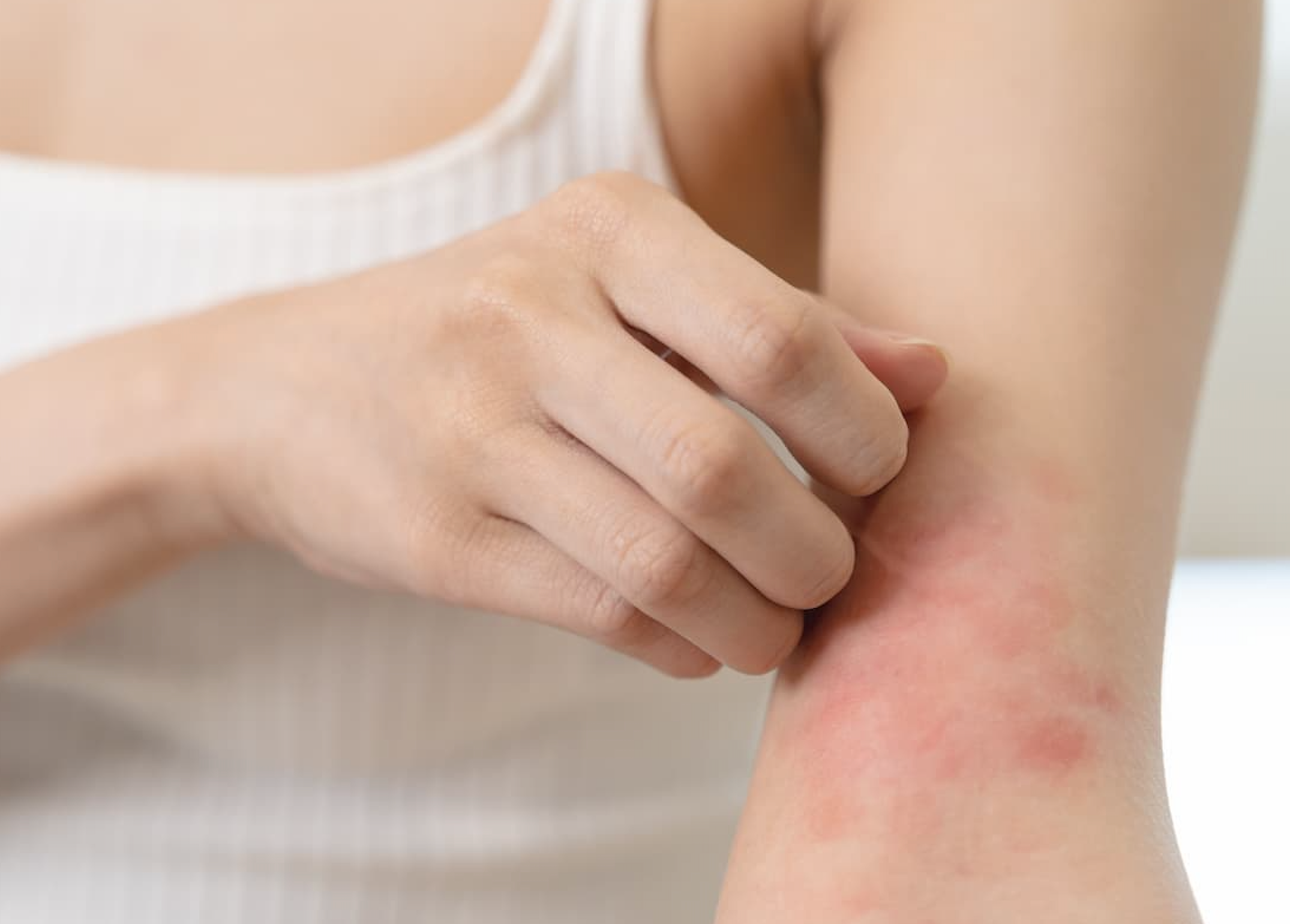
Integrating Mind-Body Therapies to Improve Outcomes in Atopic Dermatitis
Mind-body therapies may help reduce itching, pain and stress while improving sleep and overall wellbeing when used alongside conventional treatments for atopic dermatitis.
By
Lana Pine| Published on September 30, 2024
6 min read
Mind–body therapies, such as cognitive behavioral therapy, meditation and habit reversal, show promise in breaking the itch–scratch cycle when combined with conventional treatments among patients with atopic dermatitis. Although more research is needed, results of a recent study demonstrated mind-body therapies have the potential to alleviate pruritus, pain, anxiety, depression and improve sleep in patients with atopic dermatitis, emphasizing the importance of psychodermatological care.
Atopic dermatitis is a chronic skin condition that significantly impacts quality of life, with psychological stress playing a major role. In addition to itch, patients with atopic dermatitis also report sleep disturbances, depression and anxiety, which are exacerbated by the severity of the condition. Psychological comorbidities can also cause self-esteem issues and even suicidal ideation. However, improvements in mental health have been shown to improve dermatological outcomes.
Despite this knowledge, traditional treatment approaches tend to concentrate on the physical skin symptoms without tackling the psychological comorbidities. An integrative approach, combining holistic practices with conventional medicines, may be beneficial for these patients. In fact, the AD Quality of Care Initiative encouraged a multidisciplinary and holistic approach to care, which included psychological support, patient education and shared decision making. However, comprehensive models of care for these patients are not broadly available.
“The psychological aspects of atopic dermatitis and the interaction between the mind and body via the skin–brain axis has led to an interest in mind–body therapies as potential adjunct treatments,” wrote a team of investigators led by Gil Yosipovitch, MD, dermatologist and director of the Miami Itch Center at the University of Miami. “Mind-body therapy practices (such as meditation, mindfulness-based stress reduction [MBSR], hypnotherapy, guided imagery, and biofeedback) are common complementary therapies that use the mind to influence physical functions and directly affect health.”
To review the evidence for incorporating mental health as a dimension of care using an integrative approach, a group of 8 international experts met to discuss the challenges in treating atopic dermatitis as well as the potential benefits of using mind-body therapies. The main therapeutic needs of patients included itch, pain, stress and sleep disturbances, which all significantly impact a person’s quality of life.
A database search was performed to identify studies that treated atopic dermatitis using complementary and alternative therapies including patient education, cognitive behavioral therapy (CBT), meditation, mindfulness, hypnotherapy, habit reversal, biofeedback, progressive muscle relaxation, music therapy, touch therapy, massage therapy and eye movement desensitization and re-processing (EMDR).
Approximately half of patients with atopic dermatitis report using some type of complementary or alternative therapy, due in part to their dissatisfaction with conventional care.
Investigators found that incorporating patient education can increase treatment adherence. Attending family support groups was shown to improve quality of life for these patients, particularly in children with atopic dermatitis, and provided treatment guidance, coping strategies for common symptoms and distraction techniques.
A randomized-controlled trial found that 6 months of CBT was able to effectively alleviate anxiety and atopic dermatitis symptoms among patients with the highest anxiety levels. Additionally, habit reversal training focused on itch-coping, in conjunction with corticosteroids, improved skin status, acceptance and health-related quality of life while reducing catastrophizing and scratching.
Music therapy was shown to lessen symptoms of depression, anxiety, pain and stress, while patients receiving massage and touch therapy had significantly better quality of life and Eczema Area and Severity Index (EASI) scores, coupled with a lower relapse rate.
Patients who practiced mindfulness and meditation techniques reported similar improvements in quality of life and symptom severity as well as reduced levels of stress and itch behavior. Further, a systematic meta-analysis showed promising results for scratching behavior, self-control, quality of life and disease activity among a cohort of patients receiving hypnotherapy for their atopic dermatitis.
“Despite the paucity of large rigorously designed trials and no studies that directly compare different integrative treatment modalities, the overall body of evidence gathered in this review highlights the potential benefits of a multidisciplinary and integrative approach to improve the clinical management of atopic dermatitis,” investigators concluded. “Further studies are warranted, especially as integrative treatment approaches are becoming more accessible with the development of online interventions that the patients/caregivers could potentially perform at home.”

